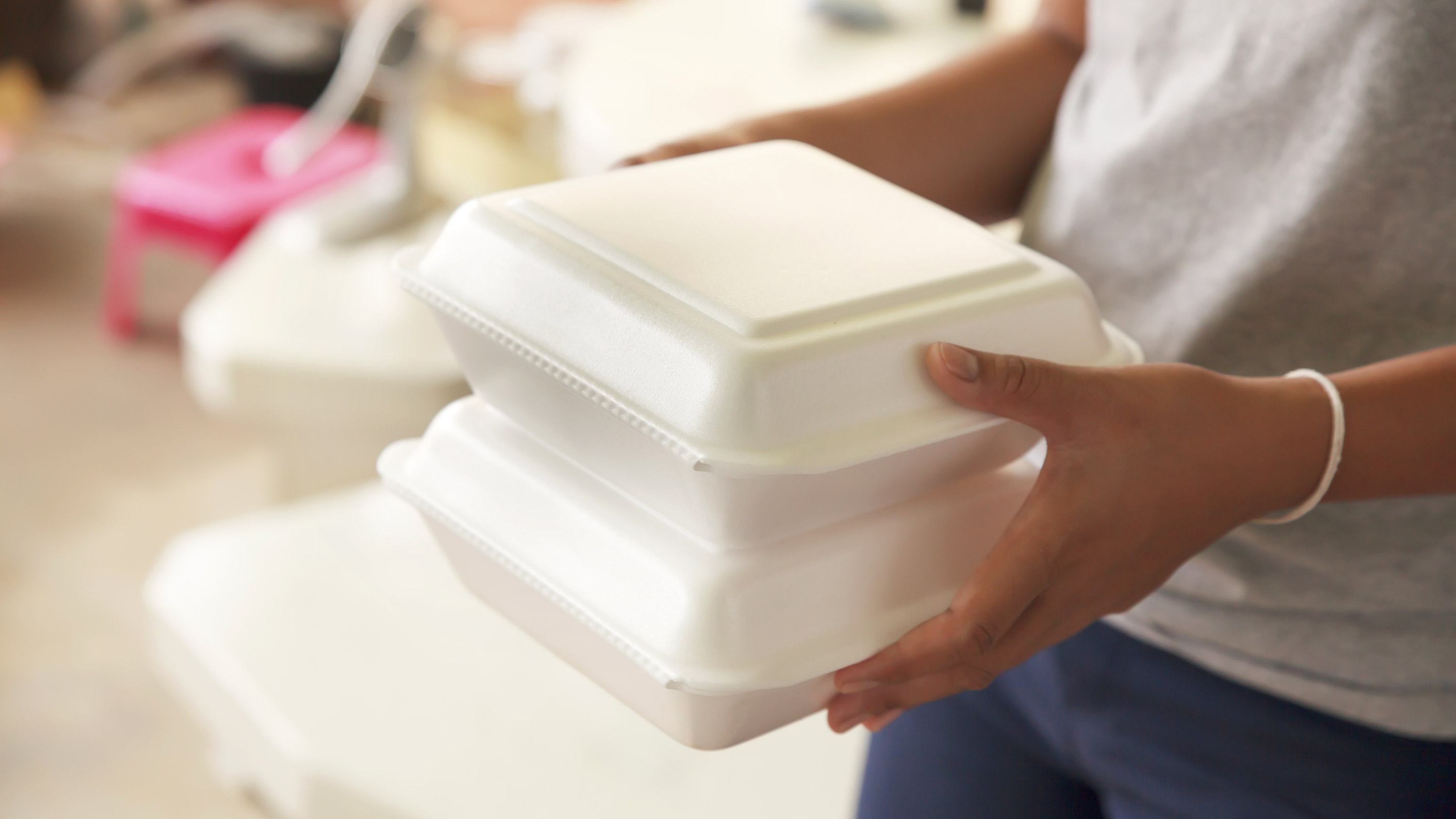The Director of Industrial Support at the Food and Drugs Authority, Ebenezer Kofi Essel, has warned the general public against consuming hot meals from plastic rubbers.
He pointed out that the practice may pose a health risk to all engaged in it and should not be encouraged.
Citing the example of ‘Koko’ (porridge) in plastics, he urged Ghanaians to seek alternative wares such as cups or calabash among others to carry their foods since plastics are not designed for that purpose.
He explained that heat from some foods can cause harmful chemicals in the plastic rubbers to be ingested while eating from them.
“Plastics are not designed for Koko. What prevents me from taking a cup or any ware that can hold the Koko. Those plastics were not designed for hot foods and so once you put it in there if there is going to be any leaching then you are going to suffer the [consecuences]”, Mr. Essel said on Angel FM’s Anopa Bofo Morning Show.
He was responding to a question about concerns from some consumers over the continued use of harmful, non-biodegradable plastic items to serve or pack hot food and beverage (F&B) items.
He however added that “I have not sited any work in Ghana or anywhere that has shown that if I put Koko in plastic this will happen to me. But what I can say is that so long as that material is not designed for Koko if there is any risk you would be exposed to that risk so don’t do it. I will be comfortable with you telling me that it was not designed for it.”
Contrary to the perception that food packaged in polystyrene, popularly called ‘take away’, Mr. Kofi Essel said that the temperature of the food is not high enough to cause the leaching of chemicals into the food.
“Leaching would take place under over hundreds of degrees Celsius. But the dangerous practices that we see is keeping such foods in microwaves [with the take away]”
Touching on the relevance of “World Safety Day”, he advocated that Ghanaians pay attention to eating safe foods, and be mindful of where they eat from.
He defined ‘safe food’ as food that contains all the essential nutrients and is devoid of microbes or disease-causing organisms.
The state and nature of the food should also be good such that its smell and look should not offend your senses but rather, appeal to you, he suggested.







































































